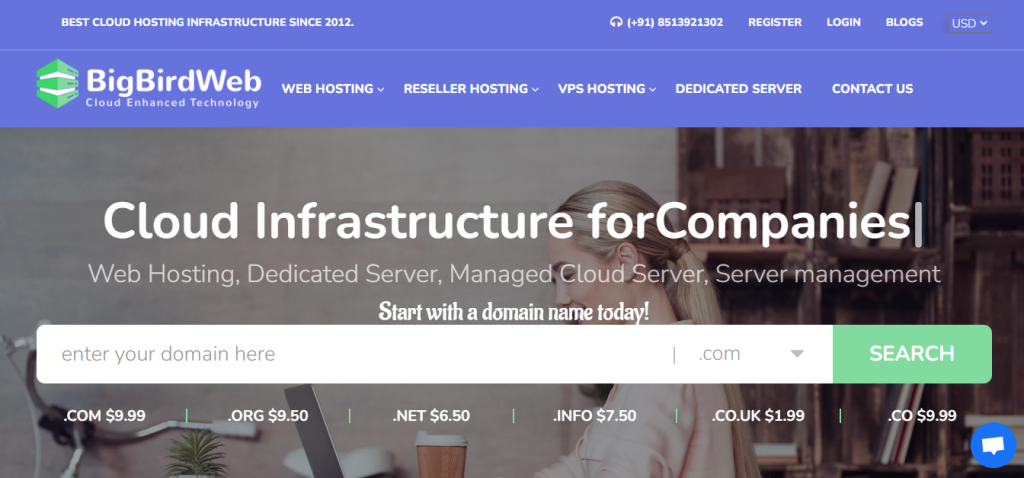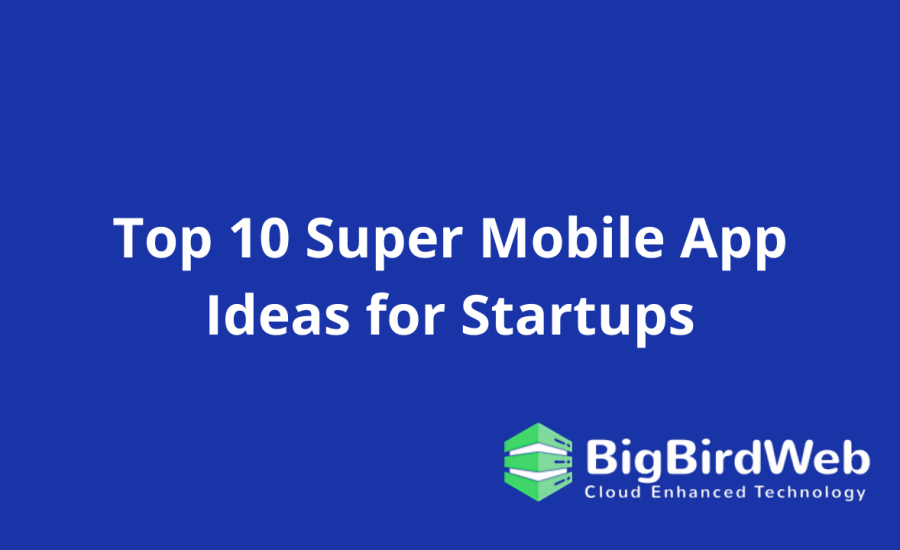In today’s fast-paced digital world, a mobile app has become a crucial component for many startups seeking to make a mark. The advent of smartphones and tablets has led to an explosion in app usage, and this trend shows no signs of slowing down. For aspiring entrepreneurs, coming up with a groundbreaking mobile app idea is the first step toward success. In this blog, we will explore ten innovative mobile app ideas that have the potential to transform various industries and capture the interest of users.

Table of Contents
1. Personal Finance Manager

Managing personal finances can be a daunting task for many individuals. A mobile app designed to simplify budgeting, expense tracking, and financial goal setting could fill a significant gap in the market. This mobile app would allow users to link their bank accounts, track spending habits, and receive personalized financial advice. Integrating features like bill reminders and investment tracking could further enhance its value. By offering a user-friendly interface and actionable insights, this app can help users take control of their financial well-being.
2. Health and Wellness Tracker
With growing awareness of health and wellness, a mobile app that focuses on holistic well-being is highly sought after. This app could offer features such as workout plans, nutrition tracking, mental health resources, and sleep monitoring. Incorporating AI algorithms to provide personalized recommendations and progress tracking can make the app more effective. Gamifying fitness challenges and offering rewards for achieving health goals can also boost user engagement and motivation.
3. Remote Work Collaboration Tool
The rise of remote work has created a demand for tools that facilitate effective collaboration. A mobile app that integrates project management, communication, and file-sharing capabilities could address this need. Features such as real-time document editing, task tracking, and video conferencing can help teams stay connected and productive. Providing a seamless user experience and ensuring robust security measures will be key to the success of this app.
4. E-Learning Platform
Education is evolving, and e-learning is at the forefront of this transformation. A mobile app that offers interactive courses, quizzes, and progress tracking could cater to learners of all ages. Incorporating multimedia elements such as video lectures, podcasts, and interactive exercises can enhance the learning experience. Additionally, integrating social features like discussion forums and peer feedback can create a more engaging and collaborative learning environment. You can also opt for free web hosting.
5. Local Services Marketplace
Finding reliable local services can be challenging for many people. A mobile app that connects users with local service providers—such as plumbers, electricians, and cleaners—can simplify this process. Users can browse service listings, read reviews, and book appointments through the app. Implementing a rating and review system, along with secure payment options, can help build trust and ensure a positive user experience.
6. On-Demand Delivery Service
The convenience of on-demand delivery services has become a staple in today’s consumer market. A mobile app that offers fast and reliable delivery of groceries, restaurant meals, or other essentials can cater to this growing demand. Features such as real-time order tracking, customizable delivery options, and user-friendly interfaces can enhance the overall experience. Collaborating with local businesses and ensuring efficient logistics will be crucial for the success of this app.
7. Augmented Reality Shopping Experience
Augmented reality (AR) is transforming the way consumers shop. A mobile app that leverages AR technology to offer virtual try-ons, product previews, and interactive shopping experiences can set itself apart in the retail sector. Users can visualize products in their own space, compare options, and make informed purchasing decisions. Ensuring a seamless and intuitive AR experience will be essential for capturing user interest and driving sales.
8. Travel and Adventure Companion
For travel enthusiasts, a mobile app that serves as a comprehensive travel companion can be invaluable. This app could offer features such as itinerary planning, local attraction recommendations, and travel tips. Integrating GPS navigation, language translation, and expense tracking can further enhance its utility. Providing users with personalized travel suggestions based on their preferences and past activities can create a more tailored and enjoyable experience.
9. Mental Health Support Network
Mental health awareness is growing, and a mobile app designed to offer support and resources can make a meaningful impact. This app could include features such as mood tracking, mindfulness exercises, and access to professional counsellors
. Incorporating anonymous peer support groups and educational content on mental health topics can also provide users with valuable resources and a sense of community. Ensuring user privacy and security will be crucial for building trust and encouraging engagement.
10. Smart Home Control Hub
As smart home technology becomes more prevalent, a mobile app that serves as a central control hub for various smart devices can be highly beneficial. This app could allow users to manage their lighting, thermostat, security systems, and other connected devices from a single interface. Integrating features such as automation routines, remote control, and energy usage monitoring can enhance convenience and efficiency. Ensuring compatibility with a wide range of smart devices and providing a user-friendly interface will be key to the app’s success.
11. User Feedback Integration
Integrating a robust feedback mechanism within your mobile app allows users to share their thoughts, report bugs, and suggest new features. This can be achieved through in-app surveys, feedback forms, or even direct communication channels like chat support. By actively listening to user feedback, you can prioritize updates and improvements that enhance the user experience. Regularly engaging with your users shows that you value their input, which can increase user satisfaction and loyalty.
12. Analytics and User Behavior Tracking
Implementing analytics tools in your mobile app helps you track user behavior, identify usage patterns, and measure the effectiveness of various features. Key metrics to monitor include user retention, session length, and in-app purchases. By analyzing this data, you can gain insights into which aspects of your app are most popular and which areas need improvement. This data-driven approach enables you to make informed decisions and optimize your app to better meet user needs.
13. Personalized User Experience
Personalization can significantly enhance the user experience of your mobile app. By leveraging data analytics and user behavior tracking, you can tailor content, recommendations, and notifications to individual users. For example, a fitness app can provide personalized workout plans based on a user’s fitness level and goals. Personalization not only increases user engagement but also helps in building a stronger connection with your audience.
14. Gamification
Incorporating gamification elements into your mobile app can make it more engaging and enjoyable for users. Gamification involves adding game-like features such as points, badges, leaderboards, and challenges to motivate users and encourage continued use of the app. For instance, a language learning app can offer rewards for completing lessons and provide a leaderboard to foster a sense of competition. Gamification can boost user retention and make the overall experience more interactive.
FAQs
Q: What makes a mobile app idea successful?
A: A successful mobile app idea typically addresses a specific need or problem, offers a unique value proposition, and provides a seamless user experience. Additionally, market research, user feedback, and effective marketing strategies play a crucial role in the app’s success.
Q: How can I validate my mobile app idea before development?
A: To validate your mobile app idea, you can conduct market research, create a prototype or minimum viable product (MVP), and gather feedback from potential users. Analyzing competitors and understanding your target audience’s needs can also help refine your idea.
Q: What are some essential features to include in a mobile app?
A: Essential features for a mobile app include user-friendly navigation, responsive design, security measures, and relevant functionality based on the app’s purpose. Additional features such as notifications, integrations, and personalization options can enhance user engagement.
Q: How do I ensure the security of my mobile app?

A: To ensure the security of your mobile app, implement measures such as data encryption, secure authentication, and regular security updates. Conducting thorough testing and addressing potential vulnerabilities can also help protect user data and maintain app integrity. Hosting can be sorted by affordable web hosting.
Q: What are some common challenges in mobile app development?
A: Common challenges in mobile app development include managing app performance, ensuring compatibility across different devices and operating systems, and addressing user feedback effectively. Staying updated with technological advancements and industry trends can help overcome these challenges.
Bonus Content
Emerging Trends in Mobile App Development
As technology continues to evolve, staying abreast of emerging trends can give your mobile app a competitive edge. Some notable trends include:
- Artificial Intelligence (AI): Integrating AI capabilities such as chatbots, personalized recommendations, and predictive analytics can enhance the functionality and user experience of your app.
- 5G Technology: The rollout of 5G networks promises faster data speeds and lower latency, enabling more advanced features and real-time interactions in mobile apps.
- Wearable Technology: With the growing popularity of wearable devices, integrating your mobile app with wearables such as smartwatches can provide users with more personalized and convenient experiences.
- Blockchain Technology: Implementing blockchain technology can enhance security and transparency, particularly for apps involving transactions or sensitive data.
- Voice User Interface (VUI): Voice-controlled interactions are becoming more common. Incorporating VUI into your app can offer a hands-free and intuitive user experience.
By considering these trends and incorporating them into your mobile app strategy, you can stay ahead of the curve and deliver innovative solutions that resonate with users.
In this blog, we’ve explored ten promising mobile app ideas for startups, each with the potential to address specific needs and create valuable user experiences. Whether you’re interested in personal finance management, health and wellness tracking, or innovative shopping experiences, there’s no shortage of opportunities in the mobile app landscape. By focusing on user needs, leveraging emerging technologies, and implementing effective strategies, you can turn your mobile app idea into a successful venture.
Bonus Content: Enhancing Your Mobile App with Emerging Trends
To ensure your mobile app stays relevant and competitive, it’s essential to incorporate the latest technological advancements and trends. Here are some emerging trends that can significantly enhance the functionality and user experience of your mobile app:
1. Artificial Intelligence (AI)
Integrating AI into your mobile app can transform the user experience by providing personalized recommendations, automating tasks, and offering advanced features. For instance, AI-powered chatbots can handle customer queries efficiently, while machine learning algorithms can analyze user behavior to offer tailored content and suggestions. Additionally, AI can enhance security measures by detecting and preventing fraudulent activities.
2. 5G Technology
The rollout of 5G networks is set to revolutionize the mobile app industry with its high-speed connectivity and low latency. This advancement enables more seamless real-time interactions, such as high-quality video streaming, augmented reality (AR) experiences, and faster data transfer. Incorporating 5G capabilities into your app can provide users with a smoother and more responsive experience, setting your app apart from competitors.
3. Wearable Technology Integration
With the increasing popularity of wearable devices like smartwatches and fitness trackers, integrating your mobile app with these devices can offer users a more cohesive and personalized experience. For example, a health and wellness app can sync with a user’s smartwatch to track their physical activity, monitor heart rate, and provide real-time health insights. This integration can make your app more valuable and engaging for users who rely on wearable technology.
4. Blockchain Technology
Implementing blockchain technology can enhance the security and transparency of your mobile app, especially for apps involving transactions or sensitive data. Blockchain’s decentralized nature ensures that data is stored securely and cannot be tampered with. This is particularly useful for financial apps, supply chain management, and any application requiring secure data exchanges. By leveraging blockchain, you can build trust with your users and ensure the integrity of their data.
5. Voice User Interface (VUI)
Voice-controlled interactions are becoming increasingly popular, thanks to virtual assistants like Siri, Alexa, and Google Assistant. Incorporating a VUI into your mobile app can offer users a hands-free and intuitive way to interact with your app. This is particularly beneficial for tasks that require quick access or when users are multitasking. For example, a travel app could allow users to search for flights or hotels using voice commands, enhancing convenience and user experience.
6. Augmented Reality (AR) and Virtual Reality (VR)
AR and VR technologies are opening up new possibilities for creating immersive and interactive mobile app experiences. AR can be used in shopping apps to allow users to visualize products in their real environment before making a purchase. VR, on the other hand, can create fully immersive environments for gaming, training, or virtual tours. By integrating AR and VR, you can provide users with unique and engaging experiences that stand out in the crowded app market.
7. Internet of Things (IoT)
The IoT connects everyday devices to the internet, enabling them to collect and exchange data. Integrating IoT capabilities into your mobile app can offer users greater control and automation of their connected devices. For example, a smart home control app can allow users to manage their lights, thermostat, security cameras, and appliances from a single interface. IoT integration can enhance the convenience and functionality of your app, making it an indispensable tool for users.
8. Edge Computing
Edge computing involves processing data closer to where it is generated rather than relying on a centralized cloud server. This reduces latency and improves the speed and efficiency of data processing. For mobile apps that require real-time data analysis, such as those in healthcare, gaming, or autonomous vehicles, edge computing can significantly enhance performance. By adopting edge computing, you can provide users with faster and more reliable experiences.
9. Progressive Web Apps (PWAs)
PWAs combine the best features of web and mobile apps, offering a fast, reliable, and engaging user experience. They work offline, load quickly, and can be installed on a user’s home screen without requiring an app store. PWAs are cost-effective to develop and maintain, making them an attractive option for startups looking to reach a wide audience. By creating a PWA, you can offer users the convenience of an app with the accessibility of a website.
10. Biometric Authentication
Biometric authentication, such as fingerprint scanning, facial recognition, and voice recognition, provides a secure and convenient way for users to access your mobile app. This technology enhances security by ensuring that only authorized users can access sensitive information. It also streamlines the login process, improving the overall user experience. Incorporating biometric authentication can increase user trust and reduce the risk of unauthorized access.
By integrating these emerging trends into your mobile app strategy, you can stay ahead of the competition and deliver innovative solutions that resonate with users. Keeping up with technological advancements and continuously improving your app’s features and functionality will help you create a compelling and successful mobile app.
In this blog, we’ve explored ten promising mobile app ideas for startups and highlighted emerging trends that can enhance the functionality and user experience of your app. Whether you’re interested in personal finance management, health and wellness tracking, or innovative shopping experiences, there’s no shortage of opportunities in the mobile app landscape. By focusing on user needs, leveraging emerging technologies, and implementing effective strategies, you can turn your mobile app idea into a successful venture.
